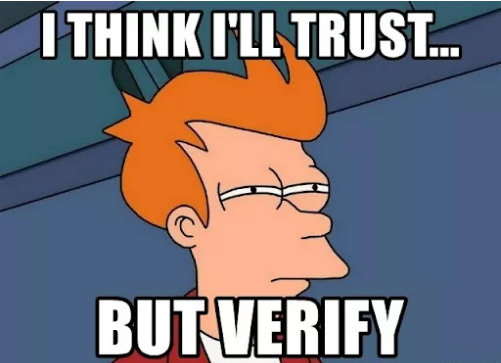Cyber Awareness Principle#1: Trust But Verify
Our Core Principle of Cyber Awareness
The world works on trust, and I get it. As with everything in our new mental health-aware culture, we even have a term should you find it hard to trust. Trust issues manifest with symptoms such as depression, jealousy, and anxiety and are among the symptoms of post-traumatic stress. That is heavy, and just saying it helps us understand why cyber criminals exploit our trust the most. Who wants to risk breaking their mind for their security? For everyone who developed trust issues, they would tell you it wasn’t a choice. Trust issues are the result of life feeling unprotected and experiencing broken promises.
So, how do you develop a secure mind without breaking your world lens?
You steal a Russian proverb, but it’s okay because Regan stole it first. Call it redistributive repossession of appropriated lessons:
Trust But Verify
Cybercriminals understand that when people trust each other, they don’t fact-check. So, if your best friend tells you to click a link to watch a funny video, chances are that most people will click first and verify after.
The solution is to modify our culture. In a world of unsafe possibilities, it shouldn’t damage the relationship. Teach your friends and family to incorporate Trust But Verify to protect themselves from cybercrime.


